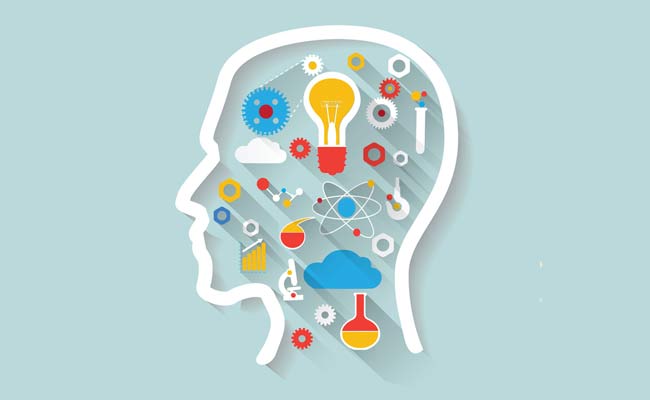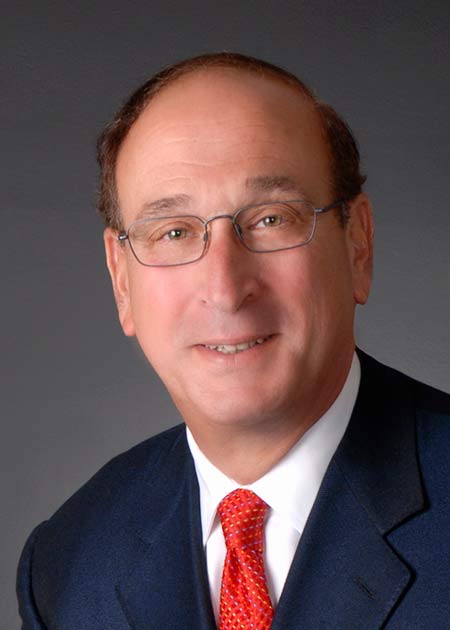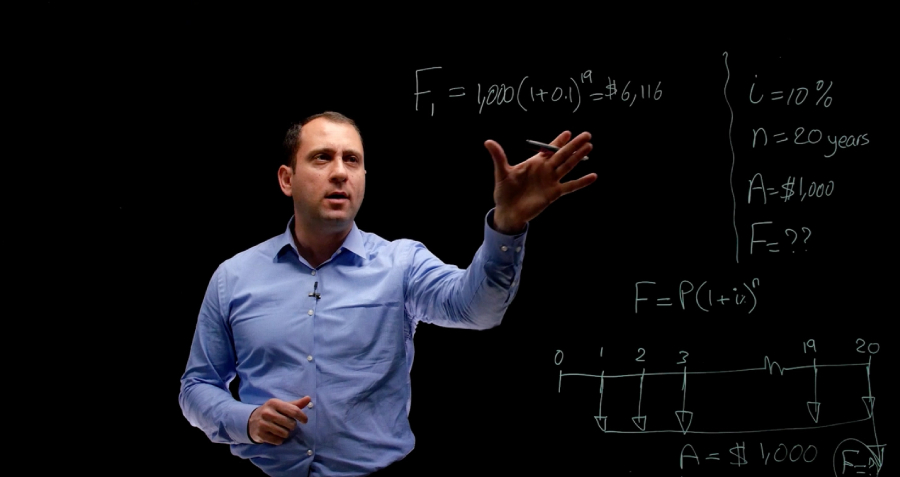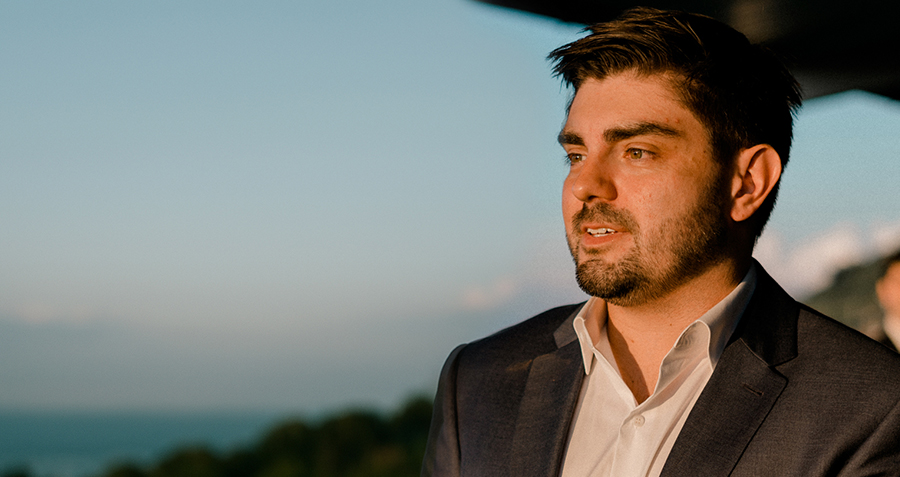
To stay relevant in the future, individuals need to learn much more quickly and differently. That entails a different kind of learning organization.
Learn or Die author Hess, professor of business administration and Batten Executive-in-Residence at the Darden Graduate School of Business, argues that automation is happening so quickly now that in 10 years, there may be only two kinds of companies: enterprises where teams of people innovate and enterprises where just a few people shepherd networks of robots and smart machines.
To succeed in this new era, he says, individuals and companies will need to learn how to learn more effectively and more quickly than ever before.
Q. What do you mean by “learn or die”?

A. The best experts say that in 10-15 years, artificial intelligence will be able to do everything that a human can do except complex critical thinking, innovative thinking and high emotional engagement with other humans.
This means people will need to take their thinking game to a higher level. Unfortunately, the science of learning shows us that humans are basically sub-optimal thinkers. We are confirmation machines–naturally reflexive, lazy thinkers who basically look to affirm what we already believe. Emotionally, we are naturally defensive. All of that is contrary to open-mindedness, the pursuit of truth, stress-testing what you think, and openness to change–the qualities we will need to succeed in this new environment.
My book (Learn or Die: Using Science to Build a Leading-Edge Learning Organization) looks at defining the type of environment–organizational culture and processes–that will be necessary for companies to be able to compete in this world that we’re fixing to enter into. I wrote it because there hasn’t been a good learning business book written since Peter Senge’s book (The Fifth Discipline: The Art and Practice of the Learning Organization) in 1990, and because of my background in cognitive psychology, I knew that there had been substantial developments in neuroscience and psychology and various lines of research that we needed a fresh look at the science of learning and its implications for the business world, so I began some years ago to take an exhaustive look at the developments in the last 25 years.
The book has over 500 academic sources, but I looked at many, many more, across all fields of psychology and behavioral economics. The more I got into the project, the more I knew that there was something here that needed to come into the business world.
Q. What were some of the new ideas you’re most excited about getting across?
A. The biggest advancement since Senge’s book has basically been in the psychology and neuroscience of emotions. Rationality is a myth. No longer do we believe that the emotional part of our brain is separate from the logical or cognitive part. The neuroscience research shows that emotions are intertwined and interrelated in every part of our cognitive processing. We also now know, with lots of research, that positive emotions enhance all complex thinking, and negative emotions, especially fear, inhibit it.
We also now know that you can basically manage your emotions and change a negative emotional state to a positive emotional state. The science of positive psychology has got enough depth now that it’s branching into learning resiliency. Innovation, if you think about it–entrepreneurship and innovation both–requires collaboration with customers and with others, collaboration requires an open mind, and an open mind requires humility and–especially in entrepreneurship and innovation–empathy. This means that the “soft side” of business becomes instead of an “oh, that stuff’s nice” thing a strategic imperative.
Q. This sounds sensible. What makes it radical?
A. It challenges hierarchy in business, it challenges Douglas McGregor’s Theory X command and control leadership model. It challenges cultures of fear, and it challenges the common business saying, let’s not get emotional.
These findings suggest that the company of the future will be a robust, positive emotional environment, led by someone very different than the charismatic, command-and-control, know-it-all leader. Instead, this leader will have intellectual humility and a capacity for empathy. It will be someone who is vulnerable and says, ‘I don’t know, we don’t know, but together we’re going to find this out. I know that experiments and exploring are going to create failures but there’s no such thing as a failure so long as we learn’.
Q. Are there any companies like that now?
A. Many companies are already doing this. In the book, I profile several companies that are doing this today: Bridgewater Associates, Intuit, W.L. Gore and IDEO. You can add to that list Pixar, Google and Amazon, but there are plenty of other companies moving in this direction.
Q. What’s different about the way these companies do business? What did you find, say at Bridgewater Associates, the $150 billion hedge fund, which would seem unusual to an outsider?
A. Managers intimately know everybody that they manage. They also have processes–processes for how to conduct meetings, processes for critical thinking, processes for exploration, and an immense, real-time feedback system. Everything is transparent, and they have a culture that says, mistakes are the way you learn, mistakes are learning opportunities.
They have a culture that basically says, it’s okay to be human here, we all have weaknesses, and basically you build a great business by having people around you that will complement you and help mitigate your weaknesses.
People are very open and honest. Candor, permission to speak freely without regard to position or rank exists. The search for the truth trumps everything. You know people three minutes and they’re sitting there telling you what their biggest personal weakness is. They manage their defensiveness, and everyone knows everyone else’s weaknesses. Everyone basically grades each other after every meeting.
Even Ray Dalio, the founder and CEO at Bridgewater, is graded at the end of every meeting by people that work in the company. I’ve read some of the ratings and some of them are brutal. He acknowledges when he’s wrong and apologizes and says he has to work on this, and he writes internally, here’s the big issue I’m working on.
Q. How do individuals compete in this kind of organization?
A. Basically, people have to grow. A culture like Bridgewater’s is not for everyone. They’re looking to be an organization of outstanding independent thinkers, the intellectual equivalent of Navy SEALS.
There’s accountability, people leave, but what you find is a commitment to openness. You see this in many technology companies too. There’s an openness and a truthfulness: hey, here are your strengths, the job you’re in doesn’t play to your strengths, we need to move you to this job. If that job doesn’t appeal to you, then we need to help you find a new home. It’s not a soft environment, it’s a high performance environment, but it’s humane and upfront. There are no surprises, and everyone is given plenty of room to continually grow and improve.
At these kinds of companies, the goal is that everyone be put in a position where they can win, but you never get into a position where the processes don’t apply to you.
[The chapter title of] my Intuit case in the book is, ‘It’s Time to Bury Caesar’. Scott Cook, the founder of Intuit, and Brad Smith, Intuit’s CEO, talk openly and freely in their internal blogs about the coaching that they’re undergoing, the need for humility and the need to be open-minded, and the need for them to openly talk about what they’re working on.
These are not soft companies. But they’re humanely accountable and they’re very transparent. That’s the difference between what’s evolved out of the industrial revolution model. We lost a lot of our humanity in the pursuit of operational excellence.
Q. That sounds great for innovation, but won’t operational excellence be needed anymore?
A. Yes, but most operations won’t be conducted by people. Ten years from now, your organization and every organization will be staffed by some combination of smart robots, smart machines and humans. Operationally excellent companies will have very, very few humans supervising a much larger number of smart robots and smart machines.
This is because if you’re an operationally excellent company, you’re operationally excellent because you have processes, and keep repeating the same task. Most processes can be written into an algorithm, and as robots become more dexterous and cheaper, you’ll see the commoditization of operational excellence. Any operationally excellent, commoditized company with few humans is going to be a very different place to work than a company where innovation is a major part of the business model. Either that or you end up with a combination company that has humans on the innovation side and critical thinking side or companies that mostly innovate and outsource all their operations.
Q. Have you noticed any changes in your own approach to thinking since you started working on this book?
A. I have worked hard the past few years to quiet my ego. This has allowed me to be a better listener, taught me to be more open-minded and increased my ability to collaborate. I don’t have to be right; I don’t have to be the smartest person in the room. That’s been the big thing.
I’ve had a successful life in the business world and in academia, but doing this research made me realize I need to take my game to a higher level. I can be even more. I need to actively manage my emotions and my thinking, so I have checklists that I read before I go in a meeting, I have checklists that I hold myself to, I grade myself every day, review, and mentally replay what happened during the day and my performance in a meeting and say, okay, wait a minute, I was starting to get defensive there. I caught it but I was starting, and I need to think about why I was getting defensive or why I was shutting down. The fascinating thing is my long-term consulting clients have noticed the difference. It’s increased my effectiveness.
Am I a better listener and learner and collaborator today? Yes. Am I where I need to be or want to be? No. I am still a work in process and I hope I will always be.



















